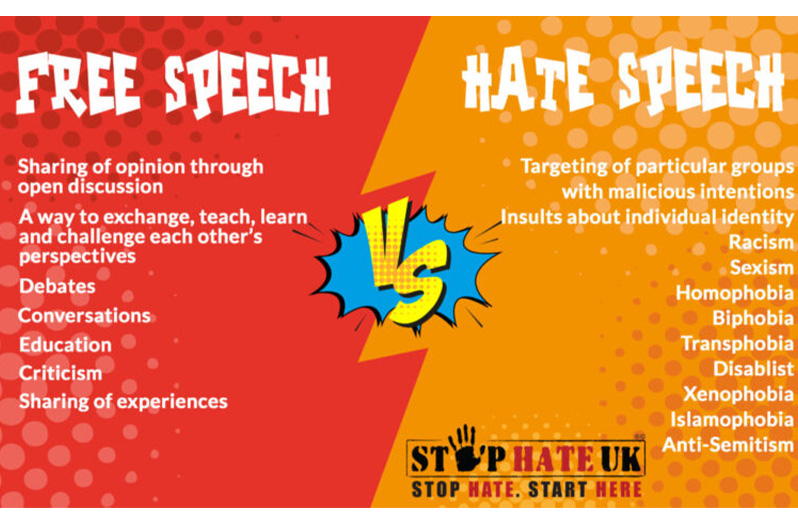GUYANA’S general election is set for later this year, and around that time, people tend to be quite expressive and opinionated. As a result, most conversations, debates, and discussions about the elections are happening online, and I’m sure many of you have seen them. Guyana is a democratic country, and as citizens, we all have the right to freedom of speech. This widely celebrated concept is recognised as a right, allowing us to express our ideologies, beliefs, and values without consequences or prejudice. However, what happens when freedom of speech becomes dehumanising, hateful, and harmful?

Free speech is often used as a weapon to justify harmful beliefs or shield individuals from consequences. However, it’s essential to examine the thin line between free speech and hate speech. If we don’t closely examine the context in which things are discussed, we can fall short in our definitions. For example, we can freely express our disagreement or disappointment with certain regulations or laws in our country, but when we use derogatory or hateful language to do so, it becomes dangerous and is not in alignment with what free speech should be.
Many people use the phrase “I am entitled to my opinion” as a shield of protection. I often see this online, in comment sections where people express their opinions on some issues but then degrade or disrespect others in the process. These comments are often followed by phrases like “I am entitled to my opinion,” “In my opinion,” “We can agree to disagree,” or “I am expressing free speech.” The issue is that certain opinions and views are discriminatory to others and their fundamental rights, but people often use the “free speech” shield to create division and hate still.
I am sure, in all of your years of utilising social media, you came across a comment section or statuses and reels from certain content creators that are discriminatory, misogynistic, xenophobic, racist, hateful, and insensitive. Unfortunately, many times, these creators are creative in their writing or use of social media in a way where the algorithm cannot detect it as hate speech. At the same time, the use of social media can spread these harmful opinions to millions of users daily. Unfortunately, hate speech can breach the walls of the internet and make it into physical spaces. When it’s excessive, people can act upon what was said and violence ensues. In Guyana, we’ve seen what happens when people extend hate speech into real-life action. It often results in violence towards specific social groups. In some countries, hate speech leads to war and even genocide.
As much as we’re all protected by our human rights, we must also acknowledge our responsibilities. People often forget that with rights come responsibilities, which means we still have to obey laws and policies and respect the rights of others as human beings. Our rights should not infringe upon the rights of others. Unfortunately, there is no standard or rule book that outlines what hate speech is. As citizens, when we see others disseminating discrimination or hate, I urge you all to report statuses and posts on social media. On apps such as Facebook and Instagram, you can report hate speech, and that content can be removed or censored.
It is my hope that the relevant authorities create protective policies against hate speech and establish clear and concise guidelines for its repercussions. Hate speech should not be mistaken for free speech, and people should not be left without consequences due to a misconception. Free speech should be used to liberate and uplift—not harm and hurt.












